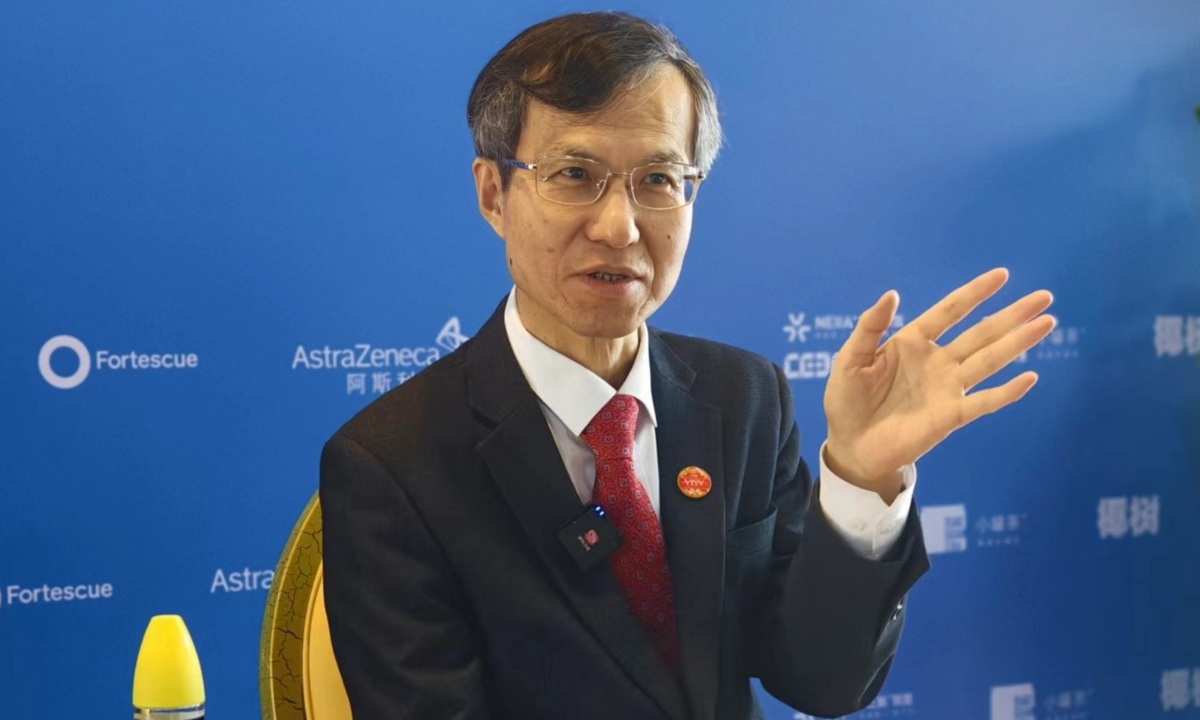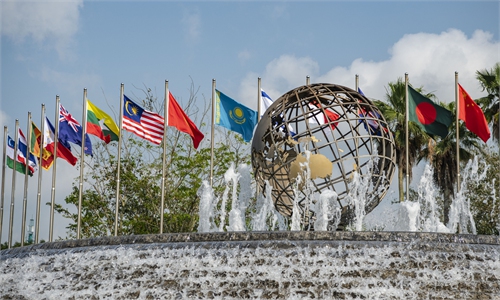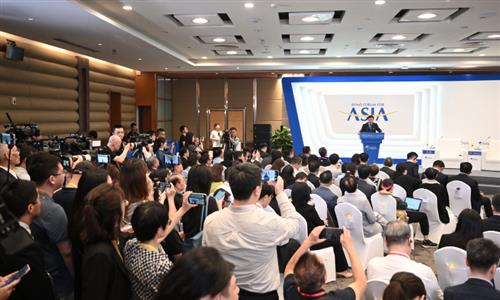Trilateral cooperation between China, Japan and South Korea needs to be facilitated: TCS Secretary General

Lee Hee-sup, Secretary General of the Trilateral Cooperation Secretariat (TCS) Photo: Zhao Juecheng
Cooperation between China, Japan and South Korea is needed "as soon as possible" in the face of various challenges and crises, including geopolitical tensions and supply chain disruptions, Lee Hee-sup, Secretary General of the Trilateral Cooperation Secretariat (TCS) told the Global Times during the Boao Forum for Asia in South China's Hainan Province, adding that he hopes the delayed China-Japan-South Korea leaders' summit will be resumed in the "near future."
According to Lee, digital transition for the carbon neutrality and the green growth, public health, population ageing, regional stability and peace, are issues that could be potentially discussed as part of a trilateral summit.
Various challenges and crises, including geopolitical tensions, are currently being faced. One of the most critical issues is the supply chain and industrial chains, which requires cooperation between the three countries, Lee said.
He also mentioned the trilateral meeting needs to discuss issues related to free trade agreements including the Regional Comprehensive Economic Partnership (RCEP). In the face of a rapidly changing world, adjustments and improvements must be made, and the three countries of China, Japan, and South Korea need to push the RCEP to a higher level, Lee noted.
"Cooperation and solidarity of the three countries are needed and the TCS needs to facilitate trilateral cooperation as soon as possible," Lee told the Global Times.
We should discuss the joint efforts to tackle the challenges and the crisis. This is not only important for China, Japan, and South Korea, but also for maintaining the security and stability of Asia and the world, he stressed.
For a long time, China, Japan, and South Korea have had close cooperation on various issues related to regional security. The leaders of the three countries have also emphasized the importance of maintaining regional peace and stability on important occasions, Lee noted, saying he hopes the China-Japan-South Korea leaders' summit will be resumed.
Lee expressed hope that if the summit is held, the three countries can once again engage in in-depth dialogue and exchange on various regional subjects, and reach consensus to effectively address the current tense situation in the region.
According to media reports, Seoul, as the current chair of the rotating dialogue, originally expected the summit to take place by the end of 2023 or early 2024. However, reports from Japanese media suggest that the forum may be postponed until May or later.
The trilateral foreign ministers' meeting between China, Japan, and South Korea was held in Busan, South Korea on November 26, 2023. It was the 10th foreign ministers' meeting since the establishment of the China-Japan-South Korea cooperation mechanism, with the previous meeting taking place in Beijing in August 2019.
Lee believed that the meeting of the foreign ministers of the three countries was held again after a break of more than four years, which was partly due to the obstacles posed by the COVID-19 pandemic, and partly due to fluctuations in bilateral relations such as between China and South Korea, and between South Korea and Japan.
In 2008, the leaders of the three countries met for the first time outside the ASEAN Plus Three (10+3) framework, taking trilateral cooperation into a new phase. The trilateral cooperation not only provides an important platform for China, Japan and the South Korea to enhance good-neighborliness and friendship and expand common interests, but also constitutes an important part of East Asia cooperation, according to Chinese Foreign Ministry.
Asked about his opinion on the occasional cultural misunderstanding among the people of three countries, Lee emphasized the need to promote grassroots exchange. "Young people are the main players in the future for our three countries," he said.
Lee said that some media amplify misunderstandings or distressing events by reporting on them in a way that may not accurately reflect the situation.



